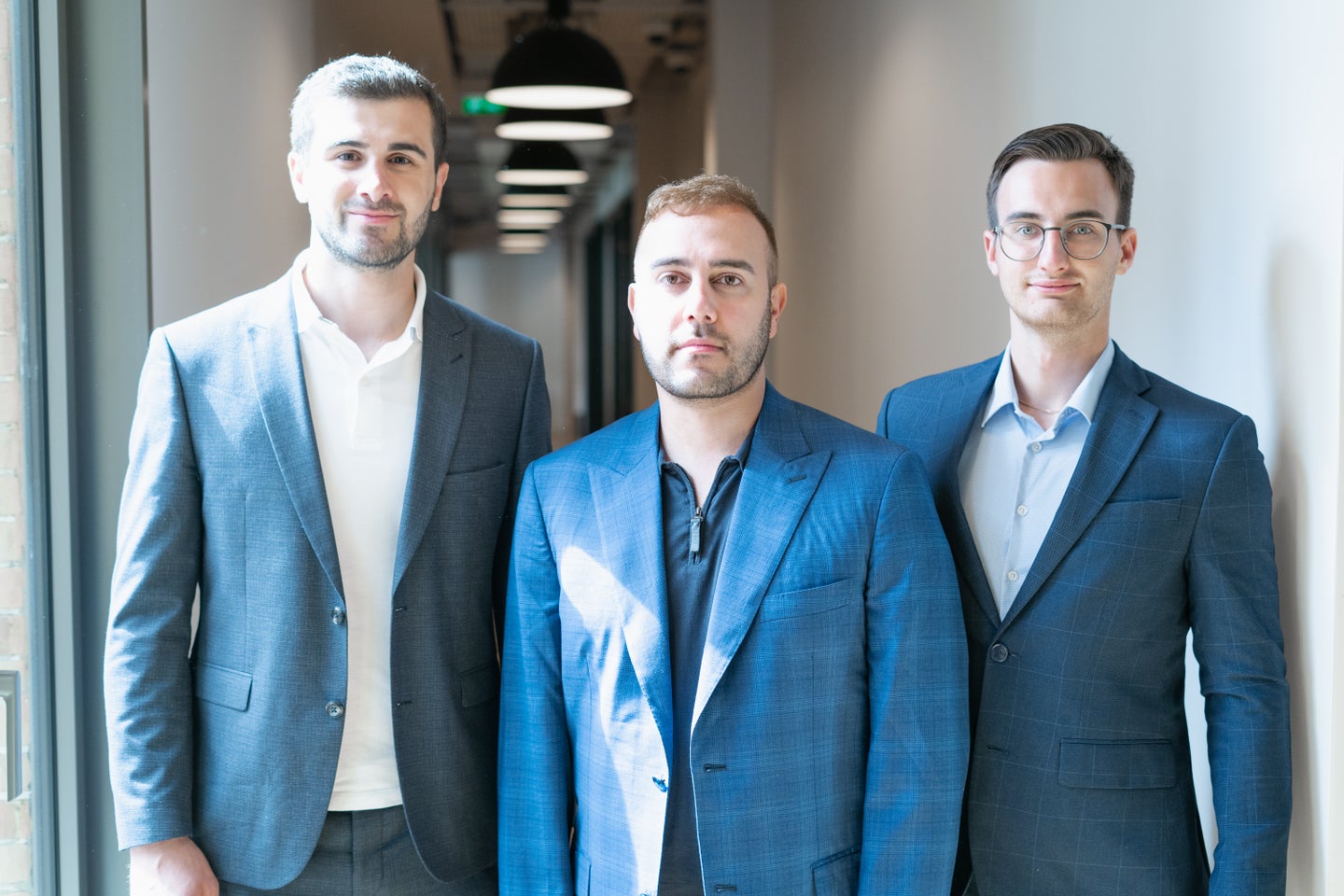Get to know Gammanics - Paris Techstars Accelerator
Sep 21, 2022

Giorgi Gogokhia, Nima Golsharifi, and Arseniy Gleykh, Co-Founders of Gammanics
01. Describe the problem/the industry that you are trying to mediate (and precise the UN SDG-s you are solving).
The issue that we are aiming to solve is two fold: lack of waste storage and the limited availability of energy.
Waste storage has become a global problem. The rise of urbanization and ‘throwaway culture’ has resulted in an absurd amount of waste being generated, affecting the health of people and the environment. To emphasize the urgency of the issue, it is important to note that the amount of waste produced yearly is enough to cover France, Germany, Switzerland, Netherlands, and Belgium together.
Limited availability of energy is another problem that significantly influences countries' development and is not yet addressed. Natural resources are finite and scarce, hence, solely relying on energy generated by fossil fuels is not a viable option.
Currently, a lot of electricity is needed to manufacture hydrogen, raising the cost to roughly 4 to 5 EUR per kilogram. Additionally, the current production of hydrogen emits a lot of CO2 which is harmful to the environment and contributes to climate change.
At Gammanics, we aim to resolve the two aforementioned issues of waste abundance and limited energy by using recycled waste to produce green hydrogen. We produce green hydrogen from municipal waste by utilizing nuclear waste to heat its plasma torch. The plasma can be heated up to 4,000 °C, which allows us to recycle all types of waste, with almost no CO2 emissions.
Thus, by providing our green hydrogen solution, we will tackle the following UN Sustainable Development Goals: Goal 7Affordable and Clean Energy, Goal 13 Climate Action and Goal 15Life on Land.
02. How did the idea to create the company come to mind? How did your team come to be?
UK’s landfills became overflown in 2022, meaning there is no more space to store waste. According to BBC, the UK exported more than 600,000 tonnes of plastic waste abroad in 2018, accounting for two-thirds of the entire amount of plastic waste generated in the UK each year.
That means that not only the UK suffers from the garbage it generates, but so do the countries to which it is exported.
One of our company's founders endured a similar incident when the federal government of Russia planned to build a landfill near his birthplace to house the capital's waste, a city located about 1,200 km away. After several years of pushback from local residents, thankfully the landfill was never opened. However, other neighborhoods in other countries have not been so lucky, and are forced to live with the negative health and environmental implications that follow waste abundance.
Our team of over 30 professionals experts Dr. Nima Golsharifi, Prof. Sir Mike Paper, Mr. Giorgi Gogokhia, and Mr. Arseniy Gleykh, who have previous experience working together in the energy field over the last few years with backgrounds in energy and business came together to tackle these problems.
03. Why did you choose to participate in the Paris Techstars accelerator program? What are you looking forward to the most?
We decided to participate in Paris Techstars because it fits well with our mission to address global environmental problems including garbage collection, global warming, pollution, and power outages. With their investment thesis focusing on sustainability, we knew this accelerator was the perfect fit for us.
Additionally, Techstars’ extensive network of mentors and partners will be invaluable to us as we develop a sustainable business model.
04. What are you the most proud of in your initial journey with your company?
Every year, around 2 billion tonnes of urban waste are generated, with less than 20% of it being recycled. The amount of global waste is expected to increase to 3.4 billion by 2050, resulting in a more severe environmental effect, a greater contribution to global greenhouse gas emissions, and climate change.
As the globe faces an energy crisis, an urgent demand for alternative energy sources has emerged in order to save the environment. Existing renewable energy options cannot fulfill current demand, while fossil fuels and coal have a significant impact on climate change.
We're thrilled that our business will be a driving force in finding innovative solutions to some of the world's most pressing issues. The encouragement and support we're getting from Techstars' mentors and partners is driving us to innovate and improve our product every day.
05. How do you plan to measure the positive impact of your company in the next 5 years? Environmentally focused question.
The beneficial impact will be measured using three main metrics: the reduction of CO2 emission, (our solution is almost CO2 emission-free), the amount of recycled municipal waste (landfills are responsible for 5% of global greenhouse emissions), and the amount of recycled nuclear waste (50 Billion USD liability for US taxpayers).
For the latest news on our applications, please visit our page.
